A definite attention-grabber on a resume is the word ‘Google’. Little wonder then that each Summer, thousands of university students from across the globe prepare feverishly in a bid to apply to what must be the most competitive 3-month program in open source software development – the Google Summer of Code. With this summer project open to students enrolled in PhD, master programs and undergraduate programs, cracking it as a freshman undoubtedly attracts attention. And we admit, it caught ours too. We find out what it takes from these four talented UG 1st year students – Shashwat Goel, Nirmal Manoj, Aditya Verma and Ishaan Shah.
Open to students 18 years and above, the Google Summer of Code (GSoc) is a remote internship project sponsored by Google which sees the participation of hundreds of open source organizations. The goal of the program is to introduce students to open software development during their summer break for an attractive stipend. According to the GSoC website, “Since its inception in 2005, the program has brought together 15,000+ student participants and 12,000 mentors from over 118 countries worldwide.” And since then “has produced 36,000,000+ lines of code for 686 open source organizations.”
There are about 20-odd IIITH students who have been selected this Summer for GSoC with 4 UG 1st year students – Shashwat Goel, Nirmal Manoj, Aditya Verma, and Ishaan Shah – in the mix. In conversation with these freshmen, we discover a pattern – that of being high achievers through their school-going years and dabbling in code since then.
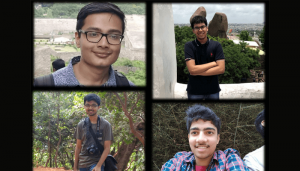
Catch ‘em Young!
Shashwat Goel credits his initial foray into tech to his high school alma mater, Delhi Public School, R.K. Puram. “I was lucky to be in a school with one of the best computer science clubs in the country, Exun. Through it, I’ve been involved in tech-related activities since class 7,” he says. In the last few years of high school, he spent a lot of time in Competitive Programming to prepare for the Indian IOI (International Olympiad in Informatics) selections. He was selected for the IOI training camp for three consecutive years – 2017-19. He also represented India at the International Olympiad of Linguistics in 2016 and 2019. Unlike his peers, Shashwat gave the JEE a miss, deciding instead to focus on his interests which afforded him the luxury of exploring options. It was the Olympiad mode of admission that brought him to IIITH. Just like it brought Nirmal Manoj.
Hailing from Kumaranellur, in Palakkad district of Kerala, NIrmal is testimony to the way government schools in Kerala are changing the way we look at them. Speaking of his obsession since he was little, Nirmal says, ”I was fascinated by computers from a very young age. I started learning to code when I was in 7th grade following tutorials on YouTube. In 8th grade, I got a Raspberry Pi as part of the Learn to Code initiative of the Kerala government. Then I started experimenting with small projects using this Raspberry Pi.” His persistence paid off the very next year with one of his projects (a hat designed to help the visually impaired cross the street) getting selected as the best one in the district. It was when he was in the 10th grade that he learned about the Informatics Olympiad and was mind blown by the sport of algorithmic problem-solving. Nirmal qualified for the IOI training camp that year and the next.
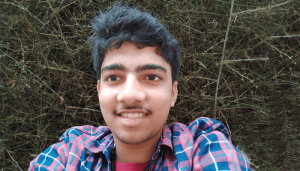
Aditya Verma, a Mumbai-ite started coding early too. “My school taught us C++ from 7th grade and Java in 9th-10th. Also, many of my relatives work in software jobs so I had some exposure to the software industry,” he says, adding that he got busy preparing for the JEE and couldn’t keep up with his interests. “I did zero to no programming for 2-3 years during my prime JEE preparation.”
For Ishaan Shah too, the tech interest began in high school when he dabbled in some minor web development as part of a course he took. In fact, way back in the 8th grade, he heard about GSoC while playing around with an open source software called Blender. “I loved using Blender and was blown away by the fact that it was open source and free for use. I wanted to help building something that is used in real life,” he says. The informatics fascination continued in the 11th and 12th grades and saw him participating in the Zonal Informatics Olympiad and Zonal Computing Olympiad, whose first levels he cleared both times. Thanks to these competitions, he got a first-hand experience in the field of Data Structures and Algorithms helping him hone his coding skills.
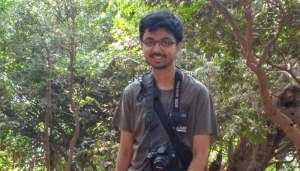
The Collaborating Community
While Ishaan had gotten a glimpse of open source software back in high school, for the others it was the buzz created after an Open Source Developers Group (OSDG) meet on campus that introduced them to GSoC. The introductory session on GSoC held by the OSDG seems to be the starting point for most first-timers applying for the prestigious internship. The OSDG call themselves a big family rallying together with the sole intention of “helping others, contributing to society and, in general, trying to make the world a better place”. The group’s website has a primer on open source likening it to a scrumptious chocolate batter that one can come up with while experimenting with unique ingredients in tandem with other friends. “I wanted to do something productive in Summer, so I found it worth exploring,” says Shashwat pragmatically. Having realised that real-world software development is very different from competitive programming, Nirmal says he was very keen to kickstart his software development journey. “I always wanted to work on an actual project that can create an impact through a product used by tens of thousands of people. One of the goals of GSoC is to give young developers more exposure to the real world, which was exactly what I was looking for,” he exclaims. For Aditya, the main aim of applying to GSoC, other than the various incentives (including a lucrative stipend) was to learn. “As I mentioned earlier, I had been away for computers for 2-3 years before joining the institute. As such, I was not aware of the latest technologies. While undergoing the internship, I hope to learn various new technologies and methods in a short time,” he says. Helping out in building something that could be used in real life was Ishaan’s primary goal too.
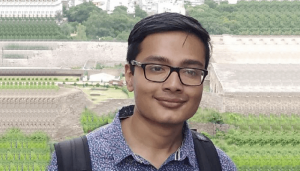
Projects
While seeking out projects, matching your interests definitely counts. For the internship, Ishaan is working on ListenBrainz, a product of an organization called MetaBrainz. ListenBrainz tracks one’s listening history and uses the data for generating recommendations and statistics, an improvement over listening trends a user gets such as list of recent listens and top artists. “I am working on generating and serving different graphs and statistics that will be more helpful to users,” he says. Aditya, whose mentor organization is Zulip, aims to improve its api documentation, so that it can be read by humans and machines alike. “The goal is to allow automation for generating api, testing and other purposes,” he says. Shashwat’s project listed under the free rule-based machine translation platform, Apertium seemed like the ideal fit for him. “I chose it because it uniquely mixed my knowledge in Algorithms and Linguistics. Graph theory is one of my favorite topics on the algorithmic side, and I just found this project super interesting while hopefully being useful to a lot of language pair developers at Apertium.” Speaking about language translation and how it involves creation of bilingual dictionaries, Shashwat says that Apertium bilingual dictionaries also contain additional analysis such as inflection rules, gender, parts of speech and so on. “My project is aimed at automating this task by using existing Apertium data. I will be referring to some existing research work on this and adapting it to implement an algorithm for Apertium.” Nirmal Manoj sent in just one proposal and it was for the project under Radare – the most popular open-source reverse engineering framework. “I’m working on improving the decompiler widget of Cutter, its graphical interface.” What enthuses Nirmal the most is the fact that not only is an advanced decompiler widget the most sought-after feature but long after his association with the project, the widget will continue to improve.
Secret Sauce
While acknowledging the assistance gained from seniors in getting started, each of them in turn have tips to share for others interested in the process of selection. “I think I started relatively late! …Only in the second week of March. But I think it is persistence that got me selected despite the late start,” says Nirmal. Aditya Verma seems to agree. “I guess persistence helped me (too)..in cracking GSoC. For example, I worked for 4 days on my first open source issue, in which I added just two lines of code, even though I barely had any idea what I was doing,” he says adding that the community is very positive, encouraging and helpful. Believing in an early start, Ishaan says, “Starting as early as possible is very important. It greatly increases your chance at getting selected. I started looking for organisations in the month of December and started working with my current organisation in January.” He adds that having good communication skills is very important along with asking the right questions to the right person. While cautioning against using this ‘advice’ for project selection, Shashwat goes on to say that what probably helped his case was that he chose a project listed as ‘very hard’ with a significant research component. “It hadn’t been taken up since a long time. This probably incentivized the organization to pick me as no one else took up the same project, whereas some projects get multiple applicants every year and are harder to get into.”
Other Pursuits
While the affinity to tech has brought this motley crew together, each of them has some unique interests that he follows as leisure pursuits. Shashwat has been actively involved with Ping! – the student e-zine of IIITH, as well as with the Entrepreneurship Cell (E-cell). “I also like watching anime, reading, listening to news and podcasts, and helping my younger brother with his studies,” he says. Aditya Verma, the self-confessed ‘avid book reader’ can be found reading mostly fiction and comics. “I love playing video games, especially multiplayer ones and in the first semester me and my friends used to play for at least 3-4 hours daily,” he says. Listening to music is another of his passions and he has the distinction of clocking more than 600 listening hours on Saavn in 2017! In Nirmal’s case, the interest lies in entrepreneurship and politics. “In my spare time, I observe startups and politics. I love observing the political discourse, how propaganda and power play out, and its impact on life,” he quips. Ishaan can either be found indoors playing video games or binge-watching TV shows, or out and about with his camera slung over his neck. “My hobbies include bird photography, drawing, reading, and playing Badminton,” he says.
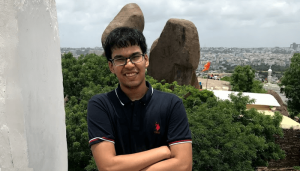
Not The End
All of 19, but wiser beyond his years, Shashwat leaves us with some food for thought. For the disappointed lot who didn’t make it, he has this to say: “Try not to treat GSoC (everything really) as a competitive exam that you have to ‘crack’. If you find a project that you really like, go ahead with it and you’ll surely be motivated to work hard, and will eventually get selected. Luckily, there being 1000+ project ideas (you can also propose your own), there’s a good chance you can find one. Otherwise, it’s best to find something else that you’re truly interested in. There’s a tonne of other stuff to do out there that does not get the same prestige or coverage but are equally good if not better activities for the summer.”

Sarita Chebbi is a compulsive early riser. Devourer of all news. Kettlebell enthusiast. Nit-picker of the written word especially when it’s not her own.

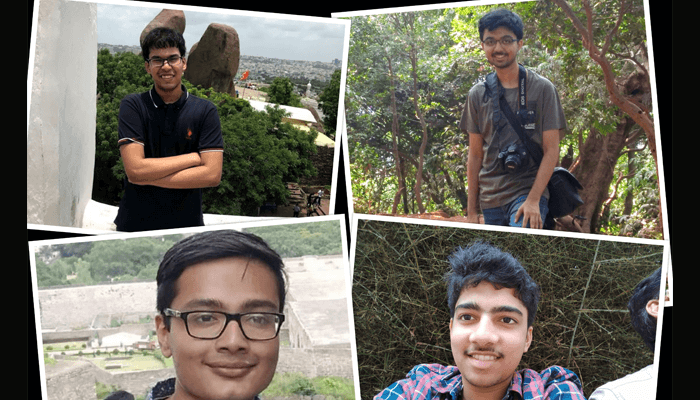
Next post